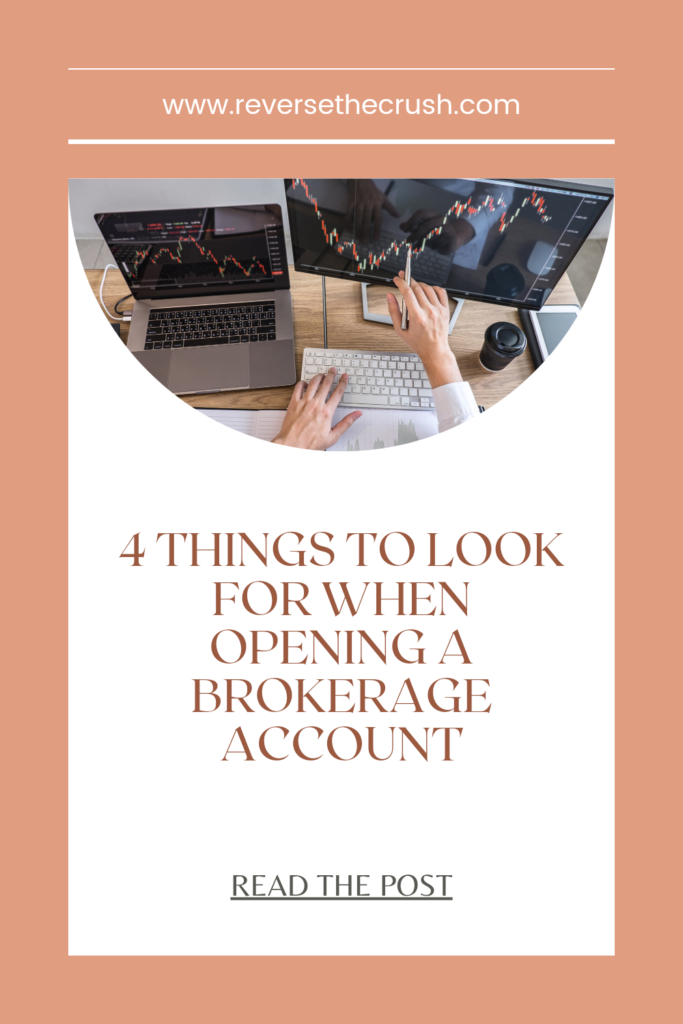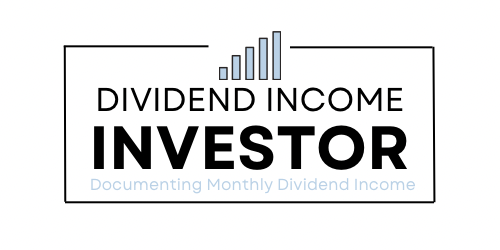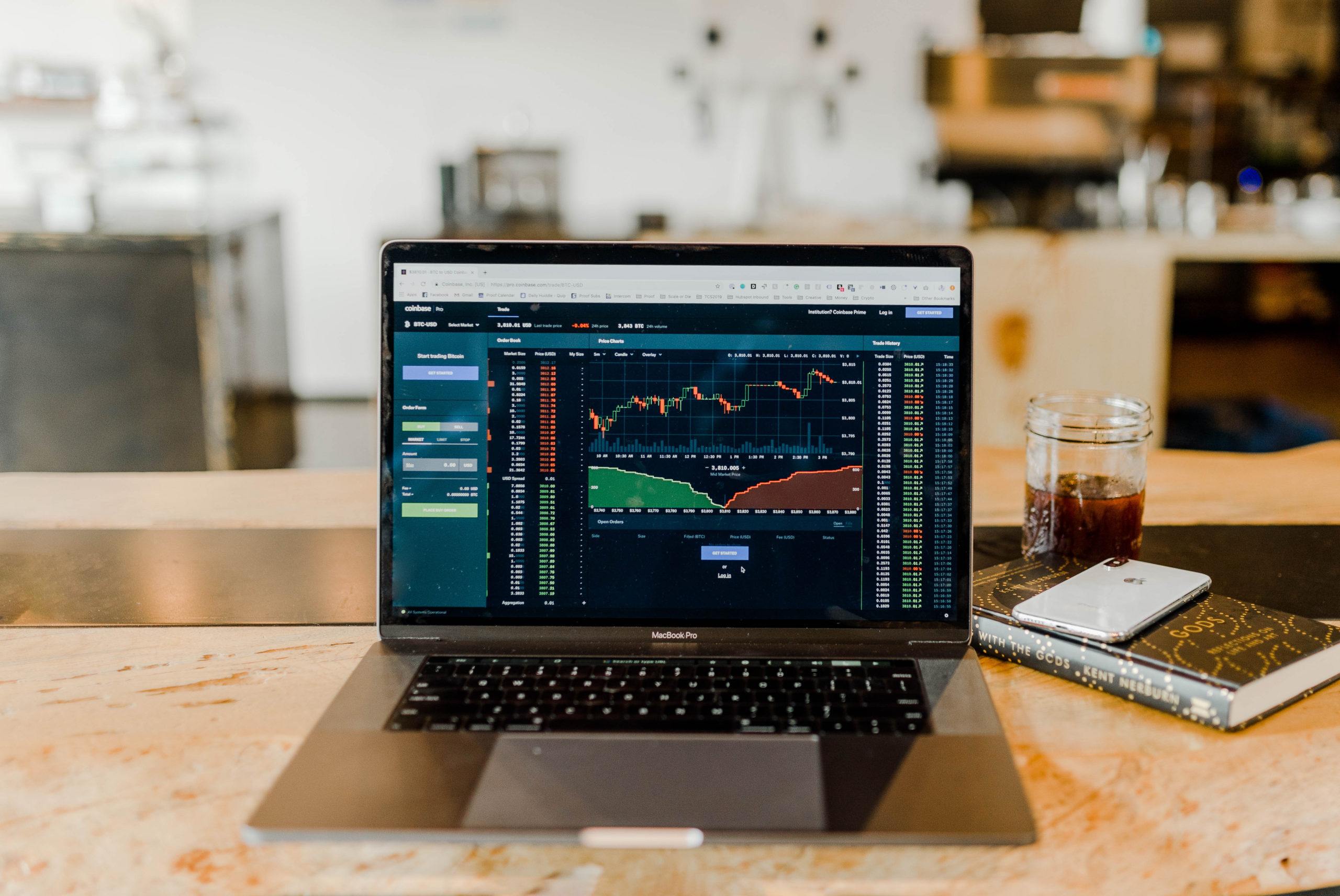4 things to look for when opening a brokerage account. Opening a stock brokerage account is a big decision. Here is what you should consider. I am not a licensed investment advisor and this article is not investment advice. This article may contain affiliate links.
Technology has revolutionized investing for the modern age. For one, the internet played a huge role in growing the popularity of stock trading. Today, investors don’t need to call up a stockbroker and put down a hefty commission fee just to purchase shares. Instead, they can sign up for a brokerage account online and trade at low costs, from the comfort of their computers and phones.
However, there are still certain difficulties associated with modern investment. Today’s investors are spoiled for choice, which isn’t always a good thing, since it may be difficult to determine which platform can best suit their needs. Aspiring investors like yourself need to look for four things before signing up for a brokerage account: investment options, management options, affordability, and educational resources.
4 Things to Look for When Opening a Brokerage Account

Available Investment Options
Before signing up for a brokerage account, determine whether your chosen trading platform offers investment options that suit your trading style. Our list of the types of investors in the stock market can help you determine investment strategies that align with your risk tolerance, investment time frame, and investment goals. For example, if you want to earn money from dividends and interest, choose a platform that offers dividend growth stocks, REITS, and bonds. But if your investment approach is more passive, the trading platform you choose should offer a quality selection of ETFs and mutual funds, for instance.
Management Options
Wealthsimple’s article on what a brokerage account is lists two types of accounts: regular and managed. In a regular brokerage account, you are in charge of your own investments. On the other hand, managed accounts leave the hard work of research and asset investment in the hands of a financial manager or advisor, who will charge fees for their services. A cheaper option would be to have your account managed by a robo-advisor. These use smart algorithms to build personalized portfolios based on your risk tolerance, financial goals, profession, income, and age.
The best type of account depends on your trading style. If you want the freedom to choose where your money goes, you can save on service fees by getting a regular brokerage account and doing your own investment research. If you want a more hands-off investment experience, seek guidance from professionals or algorithms through a managed account.
Affordability
Of course, investment is never free. In The Nest’s overview of investment costs, they outline the expenses you’ll need to take note of, which are trading commissions, and extra fees for account maintenance, transfers, set-ups, and additional research or legal work. This is on top of the minimum deposit you need to put down to start your account, and the service charge you might pay if you choose to open a managed account.
When it comes to brokerage fees, costs are generally lowest for online trading platforms, since you’re not paying any middleman for assistance. Otherwise, trading commissions might run between $6.99 and $9.99 per transaction. Some platforms might charge higher commissions.
Additionally, the kind of investor you are also plays into your costs. If you’re an active trader, high commission fees may eat into your profits. On the other hand, you might not mind higher commission costs if you’re planning on investing for the long term. Be sure to compare platforms to determine which fees you can best afford in your financial situation.
Educational Resources
Though it’s possible to research online, it’s convenient to have all the necessary information with you right as you trade. So whether or not you’re a beginner investor, you can benefit from a brokerage platform that supplies you with educational resources, such as real-time stock quotes, research reports, investment guides, and charting tools. These resources let you make informed decisions about your investments.
And if you want to practice trading without putting real money on the line, you can also look for brokerage platforms that offer demo accounts or trading simulators. An article on simulated trading notes that demo accounts can be synced with live trading brokerage accounts. This way, your practice sessions also allow you to familiarize yourself with your trading platform’s interface.
Before starting your brokerage account, research on the trading platforms available to you. Only after you’ve compared the pros and cons of each platform can you make an informed decision.
Related Articles On Brokerage Accounts And Investing
Best Brokerage In Canada: The Best Self-Directed Brokerage By Category
Self Directed Investing: Pros And Cons Of Self Directed Vs. Advisor
I am not a licensed investment or tax adviser. All opinions are my own. This post may contain advertisements by Monumetric. This post may also contain internal links, affiliate links to BizBudding, Amazon, Bluehost, and Questrade, links to trusted external sites, and links to RTC social media accounts.
Connect with RTC
Twitter: @Reversethecrush
Pinterest: @reversethecrushblog
Instagram: @reversethecrush_
Facebook: @reversethecrushblog


 How To Generate Blog Ideas — 12 Ways To Have Infinite Blog Posts Ideas
How To Generate Blog Ideas — 12 Ways To Have Infinite Blog Posts Ideas
